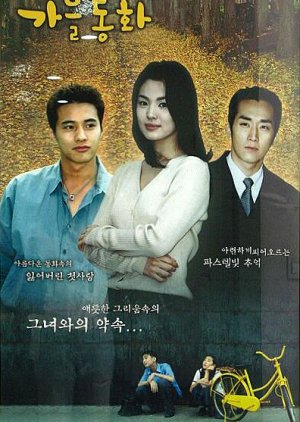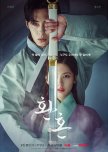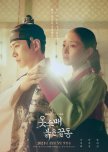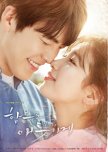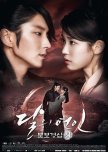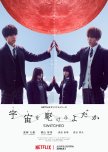
A popular teenager inexplicably finds herself in the body of an unpopular classmate - and her body's new owner has no intention of switching back.
The series centers on Ayumi Kohinata, a first-year high school student who has a cute and shy personality. She's excited that she just started dating her first boyfriend, but on the day of their first date, she gets a mysterious call from her classmate Zenko Umine. Zenko says she's going to die, and Ayumi witnesses Zenko jumping from a building. The next thing she knows, Ayumi wakes up in a hospital, but in Zenko's body.
The series centers on Ayumi Kohinata, a first-year high school student who has a cute and shy personality. She's excited that she just started dating her first boyfriend, but on the day of their first date, she gets a mysterious call from her classmate Zenko Umine. Zenko says she's going to die, and Ayumi witnesses Zenko jumping from a building. The next thing she knows, Ayumi wakes up in a hospital, but in Zenko's body.
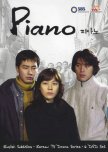
Both are melodramas about two people with no real kinship that are raised as siblings and fall in love in the path. In both cases, the lovers hide the truth to not hurt their families, except that in "Piano" the protagonists share a sister, causing that society really sees them as part of the same family. Sad endings.
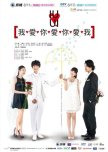
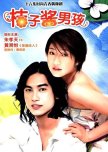

If you want to try the melodrama version of this so-called "Fake Siblings at First" then this series is good for you.
-It maybe old but gold.
-Many adaptations/remake were made from this series (Chinese, Korean, Thailand).
-You can also check the Chinese Movie of this series which is released last year entitle "Autumn's Fairy Tale".
-It maybe old but gold.
-Many adaptations/remake were made from this series (Chinese, Korean, Thailand).
-You can also check the Chinese Movie of this series which is released last year entitle "Autumn's Fairy Tale".
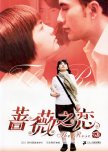
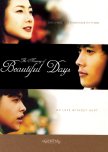
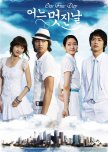

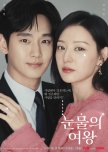
**Autumn in My Heart** and **Queen of Tears** share some similarities, making them appealing to fans of emotional K-dramas. Let's explore these connections:
1. **Heartfelt Love Stories**:
- Both dramas focus on intense love stories that transcend societal barriers and personal struggles.
- In **Queen of Tears**, the troubled marriage between lawyer Baek Hyun-woo and rich CEO Hong Hae-in serves as the central premise. Their love deepens as they navigate hardships, especially when Hae-in faces a serious illness¹.
- Similarly, **Autumn in My Heart** (2000) follows the love story between Yoon Joon-seo and Yoon/Choi Eun-seo. Raised as siblings, they later discover their true feelings for each other, leading to complications and heartache. Eun-seo's battle with leukemia adds emotional depth to the narrative¹.
2. **Melodrama Elements**:
- Both series fall into the melodrama genre, emphasizing emotional intensity, sacrifice, and heart-wrenching moments.
- Like Hyun-woo in **Queen of Tears**, Joon-seo from **Autumn in My Heart** goes to great lengths to save his beloved. His controversial decision not to visit Eun-seo at the hospital reflects the depths of his devotion¹.
In summary, both dramas tug at the heartstrings, portraying love's resilience amidst adversity. If you enjoyed one, you'll likely appreciate the emotional rollercoaster of the other!
1. **Heartfelt Love Stories**:
- Both dramas focus on intense love stories that transcend societal barriers and personal struggles.
- In **Queen of Tears**, the troubled marriage between lawyer Baek Hyun-woo and rich CEO Hong Hae-in serves as the central premise. Their love deepens as they navigate hardships, especially when Hae-in faces a serious illness¹.
- Similarly, **Autumn in My Heart** (2000) follows the love story between Yoon Joon-seo and Yoon/Choi Eun-seo. Raised as siblings, they later discover their true feelings for each other, leading to complications and heartache. Eun-seo's battle with leukemia adds emotional depth to the narrative¹.
2. **Melodrama Elements**:
- Both series fall into the melodrama genre, emphasizing emotional intensity, sacrifice, and heart-wrenching moments.
- Like Hyun-woo in **Queen of Tears**, Joon-seo from **Autumn in My Heart** goes to great lengths to save his beloved. His controversial decision not to visit Eun-seo at the hospital reflects the depths of his devotion¹.
In summary, both dramas tug at the heartstrings, portraying love's resilience amidst adversity. If you enjoyed one, you'll likely appreciate the emotional rollercoaster of the other!
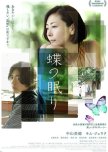
Matsumura Ryouko is a popular novelist in her 50s who has just found out that she has Alzheimer’s disease. In order to gain some fulfilment in her life, she decides to be a guest lecturer at a university. Through one of her students, she meets a South Korean exchange student, So Chan Hae. As they become closer, they fall in love.

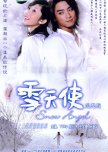
Xiao Lei and Xiao Feng are brothers who depend on each other. They live in an orphanage and have been abused by the headmaster of the place. One day, Xiao Lei sets out to find the Snow Angel who he believes will be able to help make his wish come true. On the way, he meets a girl named Xue Tong. Xue Tong lost her mother and was severely devastated that she stopped talking. The two went hand in hand, although they could not find the Snow Angel in the end, through this encounter they forged a friendship.
Fast forward to their adult years, Xiao Lei with a new name called Ji Teng, meets Xue Tong by accident and they form a bond again. At the same time, Xiao Feng who is now named Xing Feng, also has a crush on Xue Tong. He attempts to prevent Ji Teng and Xue Tong from falling in love.
Fast forward to their adult years, Xiao Lei with a new name called Ji Teng, meets Xue Tong by accident and they form a bond again. At the same time, Xiao Feng who is now named Xing Feng, also has a crush on Xue Tong. He attempts to prevent Ji Teng and Xue Tong from falling in love.

"Autumn in My Heart" and "A Time Called You" share some similarities, making them appealing to fans of emotional K-dramas. Let's explore these connections:
1. Time Travel and Emotional Depth:
- **"Autumn in My Heart"**: This classic K-drama (2000) follows Yoon Joon-seo and Choi Eun-seo, who were raised as siblings but later discover their true feelings for each other. The emotional rollercoaster intensifies when Eun-seo faces a life-threatening illness.
- **"A Time Called You"**: In this recent Netflix Original, Jun-hee and Ji-won reunite after 10 years, their memories wiped clean. As they navigate their past and present, the time-travel element adds depth to their emotional journey.
2. Complex Love Stories:
- Both dramas delve into intense love stories that transcend societal norms and personal struggles.
- **"Autumn in My Heart"**: Joon-seo's sister-complex and the tragic accident blur the lines between familial and romantic feelings².
- **"A Time Called You"**: Jun-hee and Ji-won's connection defies time, fate, and memory loss, creating a poignant narrative.
3. Themes of Fate and Consequences:
- Both explore the consequences of altering the past. In *Blue Birthday*, Oh Ha-rin faces similar dilemmas as Jun-hee when she tries to change tragic events using her ability to revisit the past.
- While **"Autumn in My Heart"** focuses on family secrets and sacrifice, **"A Time Called You"** emphasizes lost memories and second chances.
In summary, both dramas tug at the heartstrings, portraying love's resilience amidst adversity. If you enjoyed one, you'll likely appreciate the emotional rollercoaster of the other!
1. Time Travel and Emotional Depth:
- **"Autumn in My Heart"**: This classic K-drama (2000) follows Yoon Joon-seo and Choi Eun-seo, who were raised as siblings but later discover their true feelings for each other. The emotional rollercoaster intensifies when Eun-seo faces a life-threatening illness.
- **"A Time Called You"**: In this recent Netflix Original, Jun-hee and Ji-won reunite after 10 years, their memories wiped clean. As they navigate their past and present, the time-travel element adds depth to their emotional journey.
2. Complex Love Stories:
- Both dramas delve into intense love stories that transcend societal norms and personal struggles.
- **"Autumn in My Heart"**: Joon-seo's sister-complex and the tragic accident blur the lines between familial and romantic feelings².
- **"A Time Called You"**: Jun-hee and Ji-won's connection defies time, fate, and memory loss, creating a poignant narrative.
3. Themes of Fate and Consequences:
- Both explore the consequences of altering the past. In *Blue Birthday*, Oh Ha-rin faces similar dilemmas as Jun-hee when she tries to change tragic events using her ability to revisit the past.
- While **"Autumn in My Heart"** focuses on family secrets and sacrifice, **"A Time Called You"** emphasizes lost memories and second chances.
In summary, both dramas tug at the heartstrings, portraying love's resilience amidst adversity. If you enjoyed one, you'll likely appreciate the emotional rollercoaster of the other!
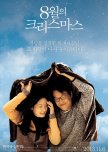
"Autumn in My Heart" and "Christmas in August" are both poignant South Korean dramas, but they differ significantly in their themes and execution. Let's explore their similarities and differences:
1. **Themes**:
- "Autumn in My Heart": Released in 2000, it revolves around Yoon Joon-seo and Choi Eun-seo, who were raised as siblings but later discover their true feelings for each other. The drama explores love, sacrifice, and family secrets, with a focus on emotional intensity.
- "Christmas in August": A 1998 film, it tells the story of Jung-won, a terminally ill photographer who runs a small studio. He meets Da-rim, a young parking agent, and their unexpected bond leads to an unfinished love story. The film beautifully captures fleeting moments and the value of time?.
2. **Romantic Bonds**:
- Both works feature unconventional romantic connections. In "Autumn in My Heart", Joon-seo's sister-complex evolves into a deep crush on Eun-seo, leading to heartache and sacrifice.
- In "Christmas in August", Jung-won and Da-rim's relationship blooms despite his impending death. Their connection is tender and bittersweet, emphasizing the preciousness of time.
3. **Emotional Impact**:
- Both dramas evoke strong emotions. "Autumn in My Heart" relies on melodrama, tragic twists, and family secrets to tug at viewers' heartstrings.
- "Christmas in August" takes a quieter approach, focusing on subtle moments and unspoken feelings. It leaves a lasting impact through its simplicity and authenticity.
4. **Legacy**:
- "Autumn in My Heart" remains a classic K-drama, remembered for its child actors' compelling performances and its exploration of love and fate.
- "Christmas in August" achieved critical acclaim, especially for its cinematography and screenplay. It endures as a beloved film in Asia and is used for teaching purposes in screenwriting and cinematography?.
1. **Themes**:
- "Autumn in My Heart": Released in 2000, it revolves around Yoon Joon-seo and Choi Eun-seo, who were raised as siblings but later discover their true feelings for each other. The drama explores love, sacrifice, and family secrets, with a focus on emotional intensity.
- "Christmas in August": A 1998 film, it tells the story of Jung-won, a terminally ill photographer who runs a small studio. He meets Da-rim, a young parking agent, and their unexpected bond leads to an unfinished love story. The film beautifully captures fleeting moments and the value of time?.
2. **Romantic Bonds**:
- Both works feature unconventional romantic connections. In "Autumn in My Heart", Joon-seo's sister-complex evolves into a deep crush on Eun-seo, leading to heartache and sacrifice.
- In "Christmas in August", Jung-won and Da-rim's relationship blooms despite his impending death. Their connection is tender and bittersweet, emphasizing the preciousness of time.
3. **Emotional Impact**:
- Both dramas evoke strong emotions. "Autumn in My Heart" relies on melodrama, tragic twists, and family secrets to tug at viewers' heartstrings.
- "Christmas in August" takes a quieter approach, focusing on subtle moments and unspoken feelings. It leaves a lasting impact through its simplicity and authenticity.
4. **Legacy**:
- "Autumn in My Heart" remains a classic K-drama, remembered for its child actors' compelling performances and its exploration of love and fate.
- "Christmas in August" achieved critical acclaim, especially for its cinematography and screenplay. It endures as a beloved film in Asia and is used for teaching purposes in screenwriting and cinematography?.

